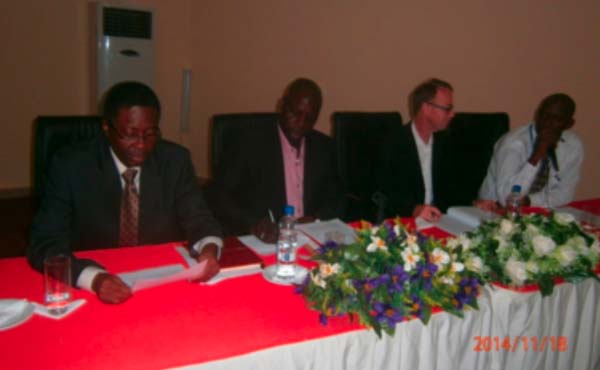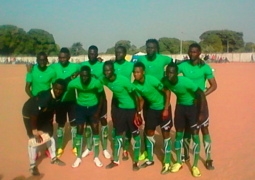
The experts were sent by the WHO following a request from the ministry of Health to assess the level of preparedness on Ebola and to help capacitate the relevant actors in the prevention and control of Ebola.
The WHO experts will also visit the quarantine centre at the Sanatorium in Banjul and the relevant border posts.
In his remarks, Momodou Njai, Director of Health Promotion and Education, said this was a forum to share and take home very important messages from their colleagues and mentors.
He said experts are going to guide them technically in trying to enrich their plan and to help them to properly implement the plan, and also show them how to implement the plan.
They will have field visits, and are here to learn from Gambian officials, after visiting other countries, and must have new ideas that are applicable to The Gambia, director Njai said.
He thanked WHO for helping in training some doctors in Uganda and Harare in the area of case management.
Dr. Charles Sagoe-Moses, WHO country representative, said a few months ago the Ministry of Health requested WHO to send experts to assess their level of preparedness.
He said some of the team members came from Dakar, UK and other places including WHO and the U.S. Centers for Disease Control, CDC, England and Germany.
According to Dr Sagoe-Moses, sometime in October there was a meeting of WHO in Brazzaville that came up with a checklist to help countries in Ebola preparedness.
He said they are also aware of the UN Ebola emergency response efforts based in Accra, which is addressing the issue of Ebola in the sub-region.
There is a difference between preparedness and readiness, and the checklist of ten key areas or components and requires implementing specific activities, he said.
The checklist looks at coordination, rapid response, public awareness, community engagement, prevention and control, case management, logistics, surveillance among others, he added.
Speaking to reporters in a short interview, Paul Cox from WHO headquarters in Geneva, said the team has a broad range of experts drawn from various places such as US CDC, England and German.He said their strategy is in line with the international health regulations capacity building, adding that they want to leave a legacy in terms of managing any public health diseases that The Gambia happens to face with.
They have been here for a few days, and looked into health care documentation in terms the procedures and conducted interview with various actors on their specific roles and responsibilities, Mr Cox added.
He said after the mission they would give support to some of the activities that are ongoing, adding that the long-term benefit of the mission is that the country is going to have the chance to deal with any public health disease in the future.
Read Other Articles In Article (Archive)



